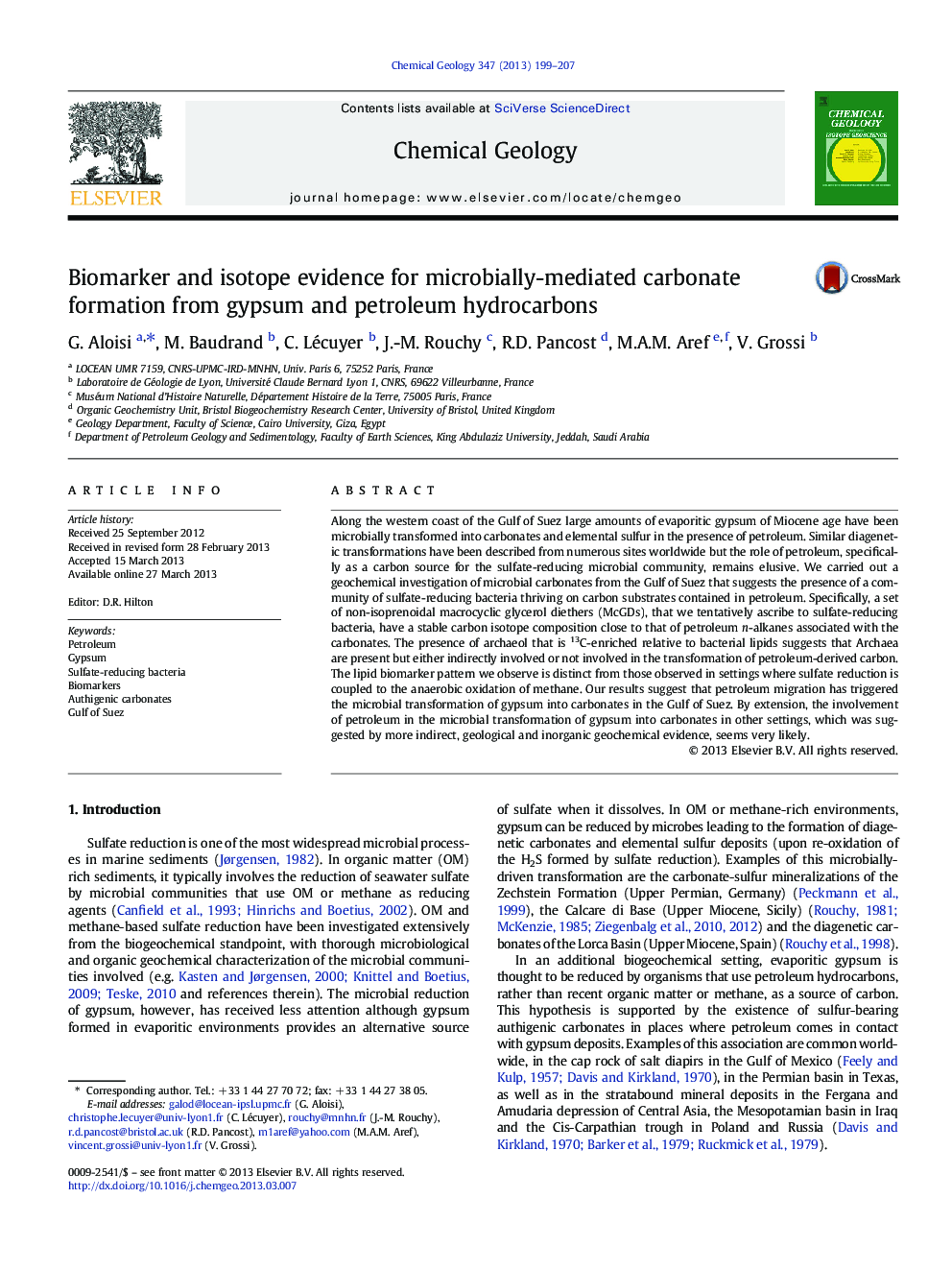| Article ID | Journal | Published Year | Pages | File Type |
|---|---|---|---|---|
| 6436970 | Chemical Geology | 2013 | 9 Pages |
â¢Gypsum is transformed into carbonates in the presence of petroleum (Gulf of Suez).â¢Biomarkers show the presence of sulfate reducing bacteria.â¢Carbon isotopes link petroleum compounds to carbonates and bacterial lipids.â¢This transformation could be widespread in petroliferous regions with evaporites.
Along the western coast of the Gulf of Suez large amounts of evaporitic gypsum of Miocene age have been microbially transformed into carbonates and elemental sulfur in the presence of petroleum. Similar diagenetic transformations have been described from numerous sites worldwide but the role of petroleum, specifically as a carbon source for the sulfate-reducing microbial community, remains elusive. We carried out a geochemical investigation of microbial carbonates from the Gulf of Suez that suggests the presence of a community of sulfate-reducing bacteria thriving on carbon substrates contained in petroleum. Specifically, a set of non-isoprenoidal macrocyclic glycerol diethers (McGDs), that we tentatively ascribe to sulfate-reducing bacteria, have a stable carbon isotope composition close to that of petroleum n-alkanes associated with the carbonates. The presence of archaeol that is 13C-enriched relative to bacterial lipids suggests that Archaea are present but either indirectly involved or not involved in the transformation of petroleum-derived carbon. The lipid biomarker pattern we observe is distinct from those observed in settings where sulfate reduction is coupled to the anaerobic oxidation of methane. Our results suggest that petroleum migration has triggered the microbial transformation of gypsum into carbonates in the Gulf of Suez. By extension, the involvement of petroleum in the microbial transformation of gypsum into carbonates in other settings, which was suggested by more indirect, geological and inorganic geochemical evidence, seems very likely.
